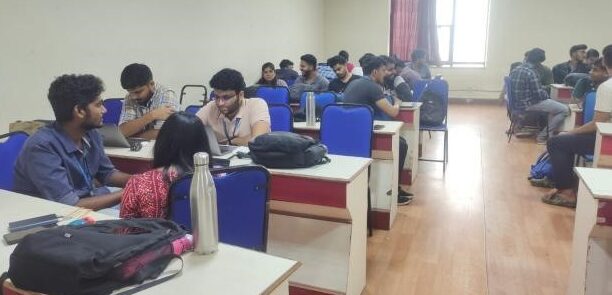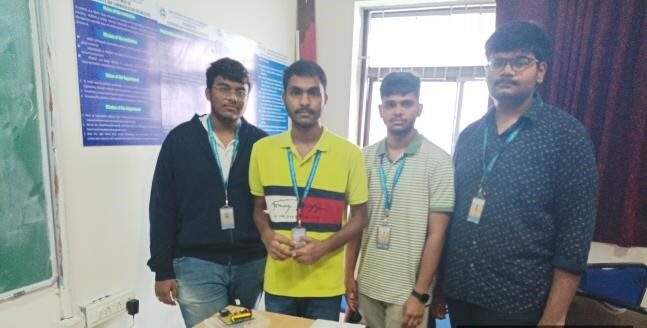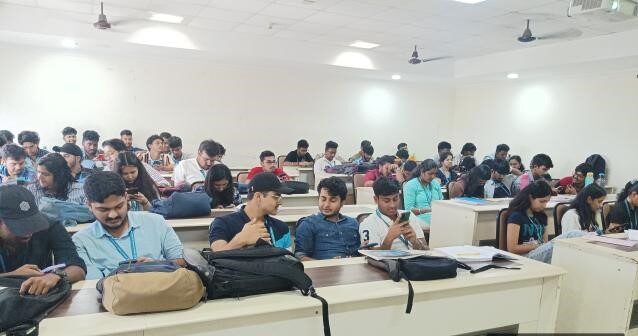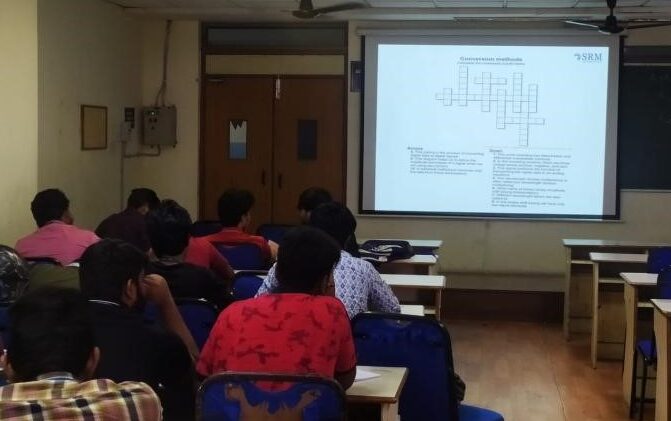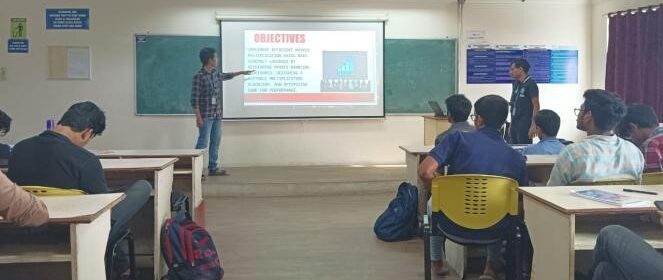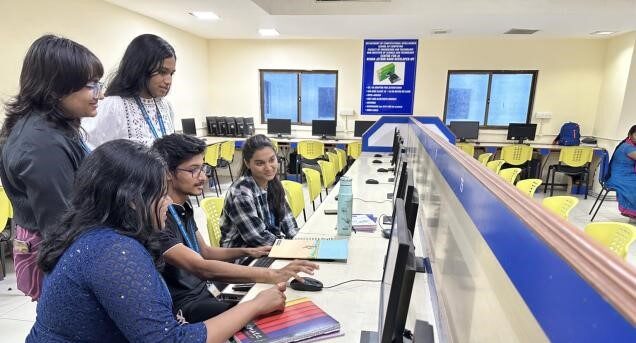Innovative Teaching and Learning Practices
The website contains the best teaching and learning practices implemented by the Department of Computational Intelligence. These practices enhance student engagement, foster innovative learning methods, and improve educational outcomes.
Some of the teaching and learning practices are given below:
Flipped Classroom
- Students are required to engage with lecture materials (videos, readings, or presentations) before attending class.
- Class time is dedicated to interactive, hands-on activities such as discussions, group work, problem-solving, and practical exercises, allowing students to apply concepts and engage more deeply with the material.
- Students collaborate with their peers in class to work through challenges, share insights, and strengthen their understanding of the material through group discussions and cooperative learning.
Project-Based Learning
- PBL engages students in projects that address real-world problems, allowing them to apply theoretical knowledge in practical, meaningful ways.
- PBL promotes teamwork and collaboration, as students often work in groups to complete projects.
- Through PBL, students develop essential skills such as critical thinking, problem-solving, time management, and presentation abilities.
Formative Assessment
- The primary goal of formative assessment is to enhance student learning and improve their performance.
- Formative assessments can take various forms, including quizzes, discussions, peer reviews, self-assessments, and classroom activities.
- It encourages students to reflect on their learning progress and understand their strengths and areas for improvement.
ICT-Enhanced Learning
- ICT tools, such as interactive whiteboards, educational apps, and virtual simulations, make learning more interactive and engaging. These tools can cater to different learning styles and increase student participation and motivation.
- These tools can cater to different learning styles and increase student participation and motivation.
- ICT enhances assessment and feedback mechanisms by enabling the use of online quizzes, automated grading systems, and data analytics.
Case-Based Learning
- Case-based learning involves the analysis of real or simulated cases that reflect complex, real-world scenarios.
- Students engage in critical thinking and problem-solving by evaluating case studies, identifying key issues, and developing solutions.
- Through case analysis, students develop essential professional skills such as communication, teamwork, and presentation.
Experiential Learning
- Hands-on learning activities allow students to apply theoretical concepts in real-world settings.
- These activities help students develop practical skills that are essential for their future careers.
- For instance, lab work can enhance technical skills, field trips can provide insights into industry practices, and internships can offer hands-on experience and professional networking opportunities.















